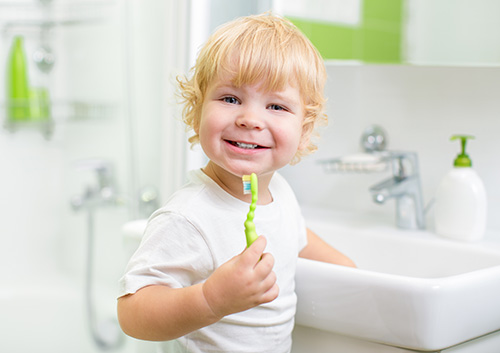Healthy Resolutions for Healthy Teeth
December 28th, 2023

Every January 1st, you have your resolutions ready. No more nail biting. Lose ten pounds. Stop smoking. None of us are happy about those annoying bad habits we’ve picked up over the years. But if nothing else has helped you keep your resolutions, maybe seeing how they can improve your oral health will give you some extra willpower.
- No More Nail Biting
You can easily see how nail biting affects your fingernails, but its effects are more than cosmetic. The pressure this habit puts on tooth enamel can lead to cracks, chips, and enamel erosion. Nail biters have a greater risk of bruxism, or teeth grinding. (More on that below.) And the transfer of germs from fingers to mouth and mouth to fingers is a vicious circle that can lead to illnesses and infections in both fingers and mouth.
- Cut Down on Junk Food
Sugars and carbs help pack on the pounds, no doubt. Did you know that they can also help create cavities? Sugar is a favorite food for oral bacteria, which allows them to produce acids which attack and weaken tooth enamel. And carbs? They convert easily to simple sugars. Choose nutritious snacks and beverages, and you will keep those teeth healthy. You might even lose a few pounds!
- Lower the Volume
If your partner complains about sleepless nights thanks to your nocturnal teeth grinding, or your friends ask you to quit chewing on that cup of ice while they’re trying to watch a movie with you, listen to them! (If you can hear them over the grinding and chewing.) Bruxism can fracture teeth, cause headaches and jaw problems, and might even lead to loose teeth. Chewing hard foods can have the very same effects. Too much pressure from any source can damage your teeth. Grinding, chewing ice, crunching down on hard candies—any habit that’s loud enough to annoy others could be a warning to be more careful of your teeth.
- Don’t Put That in Your Mouth!
Helping you eat and chew nutritious foods—of course. Smiling—absolutely. Ripping off a piece of duct tape, tearing open a potato chip bag, holding your dog’s leash while you look for your keys, opening a tight bottle cap—no, no, no, and really no. Fractures and chips are common injuries when you use your teeth as tools. Your teeth have a crucial job to do, but that job description never includes “scissors” or “nutcracker” or “bottle opener.” Take that extra minute and find the tool you need!
- Drink in Moderation
Along with all the other consequences of over-indulging, too much alcohol in your diet can be bad for your oral health. Alcohol, especially paired with sugary drinks, helps create that acidic environment that leads to weakened enamel. More than that, it’s dehydrating. Without sufficient hydration, we don’t have the optimal saliva production we need to fight cavities. After all, saliva helps wash away food particles and bacteria, neutralizes acids, and strengthens enamel through remineralization. Ring in the New Year—moderately!
- It’s Time to Quit
Cigarettes, pipes, cigars, chewing tobacco—there is no tobacco product that is healthy for your body or your teeth! We’re all familiar with the discoloration tobacco can cause, but it also has serious oral health consequences. Oral cancer, gum disease, early tooth loss—all these conditions have been linked to tobacco use. Today there are more methods than ever before to help you quit. Make this your year!
You don’t have to wait for the New Year to start working on healthier habits. If you’d like to tackle teeth grinding, banish nail biting, stop smoking, or work on any other habits that can damage your health and your teeth, talk to Dr. Bates at your next visit to our Colonial Heights office. And, don’t forget—resolving to see us twice a year for a checkup and a cleaning is a resolution that’s extremely easy to keep!




